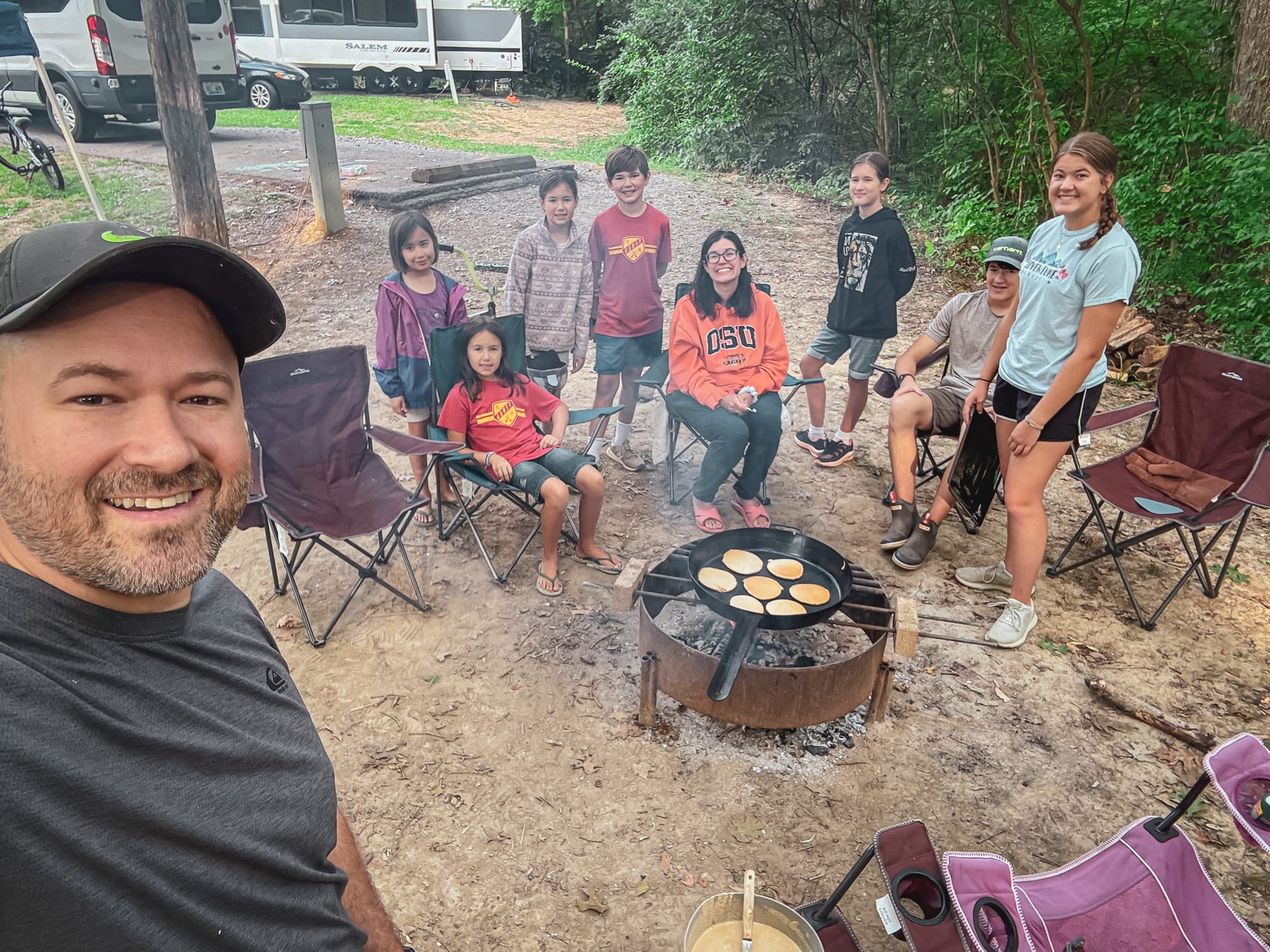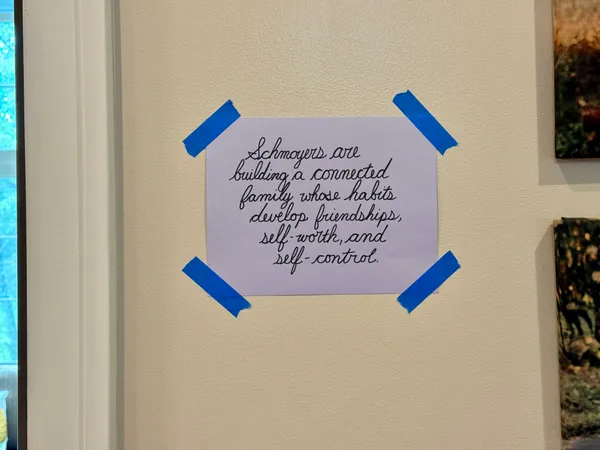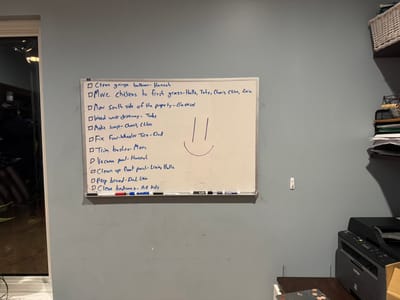The warning signs weren't dramatic. No explosive conflicts or family meetings called in crisis. Instead, it was the accumulation of small disconnections: older kids developing independent lives with college classes and jobs, younger kids not yet interested in the things that excited the older kids, different movie preferences when it came time for family movie time, all of it symbolic of small divisions in our family. The bickering increased. The genuine laughter decreased. Family time became transactional rather than transformational.
What struck me most was when our children began voicing what Dana and I were already sensing—they didn't feel connected to each other. When your family starts echoing your own unspoken concerns, you know you've reached a point where action is required.
The Courage to Say No to Good Things
The hardest part wasn't identifying the problem; it was the tenacity to do what we knew was necessary. With the input of some trusted friends, Dana and I decided to say no to almost everything in our schedule that didn't directly benefit our internal family relationships.
The challenge was that this wasn't about eliminating bad activities—these were good things. Community involvement, social commitments, and even Bible studies that enriched our lives individually, but when the good gets in the way of the essential, even beneficial activities can become obstacles to what matters most.
Designing Intentional Connection
So we redesigned our entire family rhythm around relationship-building:
- 🛡️ Family Time Boundaries: Tuesday evening, Friday evening, and Saturday afternoons are now protected family time.
- 🌱 Creative Shared Experiences: Instead of defaulting to age-segregated activities, we began crafting experiences that engaged everyone. For example, I created an escape room at home with cookie rewards based on how quickly they solved the puzzles. We also connected two Xbox systems for family gaming tournaments. We even went camping for a weekend.
- 🧭 Check-In Conversations: Dana and I instituted daily check-ins with each other and weekly check-ins with each of our seven children. We simply meet privately and ask questions like, "What are you thinking about lately? Which relationships feel strong? Where are you struggling?"
The insights from these conversations with our children were very revealing. Each child shared perspectives and struggles we hadn't recognized, providing helpful context for how we form stronger family connections. Within a few hours, the low-level tensions and seemingly random conflicts began to make sense, with clear paths towards resolution.
The Results So Far

So far, the efforts seem to be working. When we asked each child about their favorite moments of our camping trip, their responses were unanimous: the times when our entire family was engaged together. It wasn't the age-appropriate activities where groups split off, but the moments we were all together—sitting around the campfire, swimming in the lake together, and playing miniature golf together.
Our children were telling us that connection across the age gaps and different interests was not only possible, but actually preferred.
And tensions are lowering as we begin working through the observations our kids surfaced in our one-on-one check-ins.
We plan to maintain this family-focused rhythm through January, possibly extending it through the entire school year, depending on how it goes.
It's been very hard for us to say no to so many good things that were in our family's schedule. Choosing to prioritize relationships within the home over those outside has not always been well-received by our kids, others outside our home, or even by Dana and me at times. It's costly to many people, but the cost of not prioritizing our family relationships will be much more costly over time than the things we're temporarily giving up.
The courage to say no to good things in order to say yes to essential things might be one of the most important leadership decisions we make in our homes.






